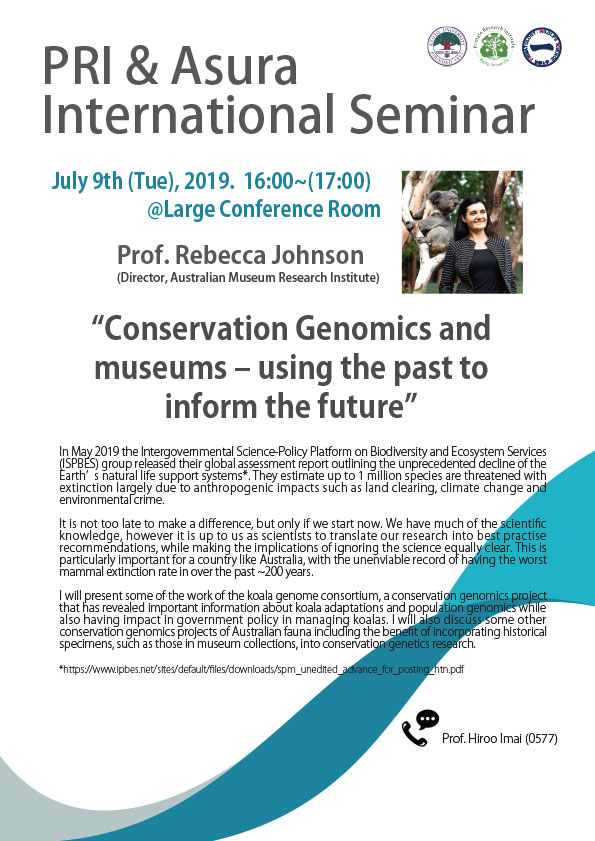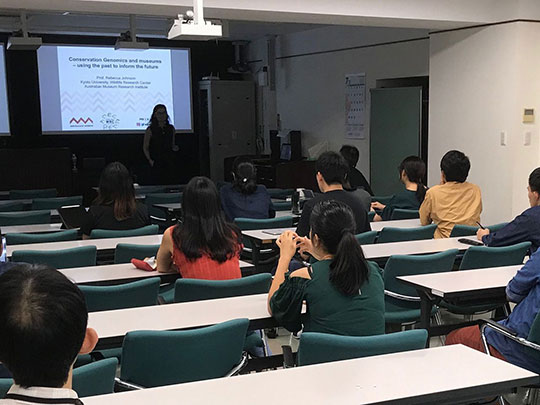

July 9, 2019
Large Conference Room, PRI
Prof. Rebecca Johnson
Director, Australian Museum Research InstituteIn May 2019 the Intergovernmental Science-Policy Platform on Biodiversity and Ecosystem Services (ISPBES) group released their global assessment report outlining the unprecedented decline of the Earth’s natural life support systems*. They estimate up to 1 million species are threatened with extinction largely due to anthropogenic impacts such as land clearing, climate change and environmental crime.
It is not too late to make a difference, but only if we start now. We have much of the scientific knowledge, however it is up to us as scientists to translate our research into best practise recommendations, while making the implications of ignoring the science equally clear. This is particularly important for a country like Australia, with the unenviable record of having the worst mammal extinction rate in over the past ~200 years.
I will present some of the work of the koala genome consortium, a conservation genomics project that has revealed important information about koala adaptations and population genomics while also having impact in government policy in managing koalas. I will also discuss some other conservation genomics projects of Australian fauna including the benefit of incorporating historical specimens, such as those in museum collections, into conservation genetics research.